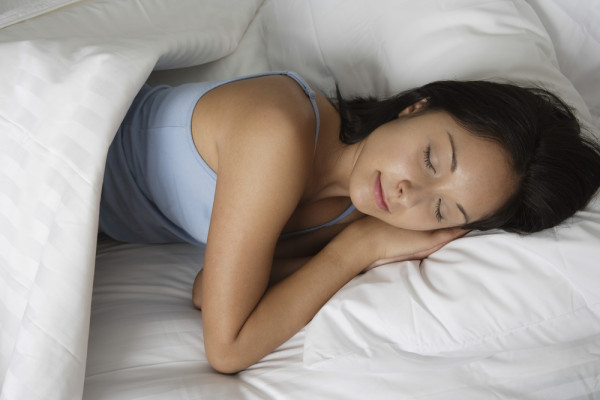By Team Best Life
Skimping on sleep on occasion won’t cause much damage, but if you do so on a regular basis you’ll begin to see the effects, such as a decrease in memory and attention and possibly even weight gain. How can you make sure to get the recommended 7 to 8 hours a night? Your first step is to be aware of seven common sleep saboteurs:
1. Alcohol: Many people believe a nightcap helps you sleep, and while it initially can help you relax, it ultimately interferes with your ability to stay asleep. In fact, one study found that men who consumed an alcoholic drink before bed spent more time in the lighter first stage of sleep and less time in the later deep stages of sleep compared to those who drank an alcohol-free or lower-alcoholic drink. And, as the effects of alcohol wore off, the men experienced more awakenings. Limit your alcohol intake, and if you are going to drink, try to do so earlier in the day.
2. Stress: It’s tough to fall asleep when your mind is racing. To unwind before bed, you can write about your worries in a journal, try progressive relaxation—where you visualize different parts of your body relaxing—or take a warm bath.
3. Your ZIP code: People who live in Southern states—including Oklahoma, Arkansas, Mississippi, Alabama and West Virginia—report the greatest amount of daytime fatigue, while people in the West report the least, according to a study from the University of Pennsylvania. “The most likely explanation is that there are some factors that play a role that were not measured—for example, how people react to sleep problems and beliefs and attitudes about the importance of sleep,” says study author Michael Grandner, Ph.D.
4. Your job: People who work long hours or have stressful jobs—including police officers, doctors, paramedics, and financial analysts—tend to log fewer hours of sleep, according to a survey by Sleepy’s. Professions that reported feeling most well-rested included athletes, teachers, hair stylists, and even bartenders.
5. The weather: As the weather gets colder and less humid you might experience things like nosebleeds and sore throats, which can interfere with sleep. Running a humidifier during the night may offer some relief.
6. Colds and flu: The aches, pains, and coughs that come along with a cold can keep you up all night long. Over-the-counter meds can offer enough relief to help you get more shuteye. Try Tylenol for aches and pains or a cough suppressant for a cough.
7. Sleep apnea: This life-threatening condition in which the muscles in the back of the throat relax too much and collapse, causing you to stop breathing when you’re sleeping, affects millions of people, the vast majority undiagnosed. If a partner notices symptoms like snoring or a pause in breathing while you sleep, or if you feel excessively sleepy during the day even after a good night of sleep, ask your doctor if you should be tested for the condition.
Read More:
An Interview with Doctor ZZZZZZ

